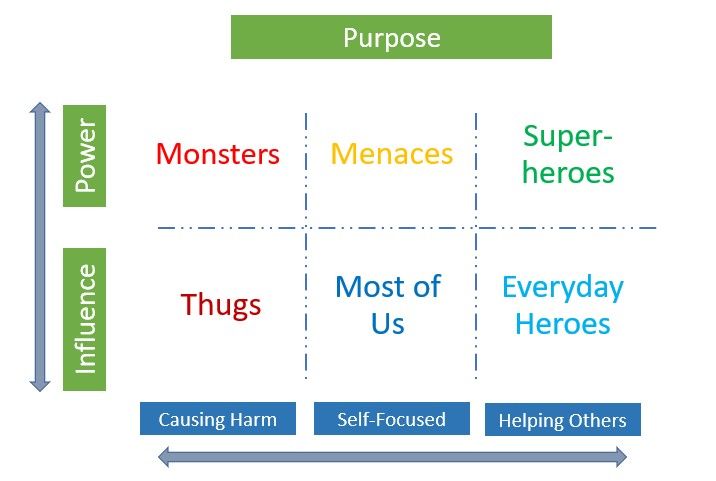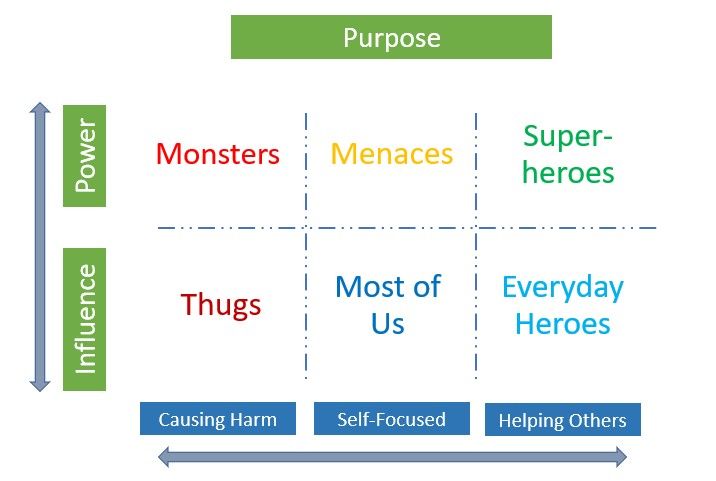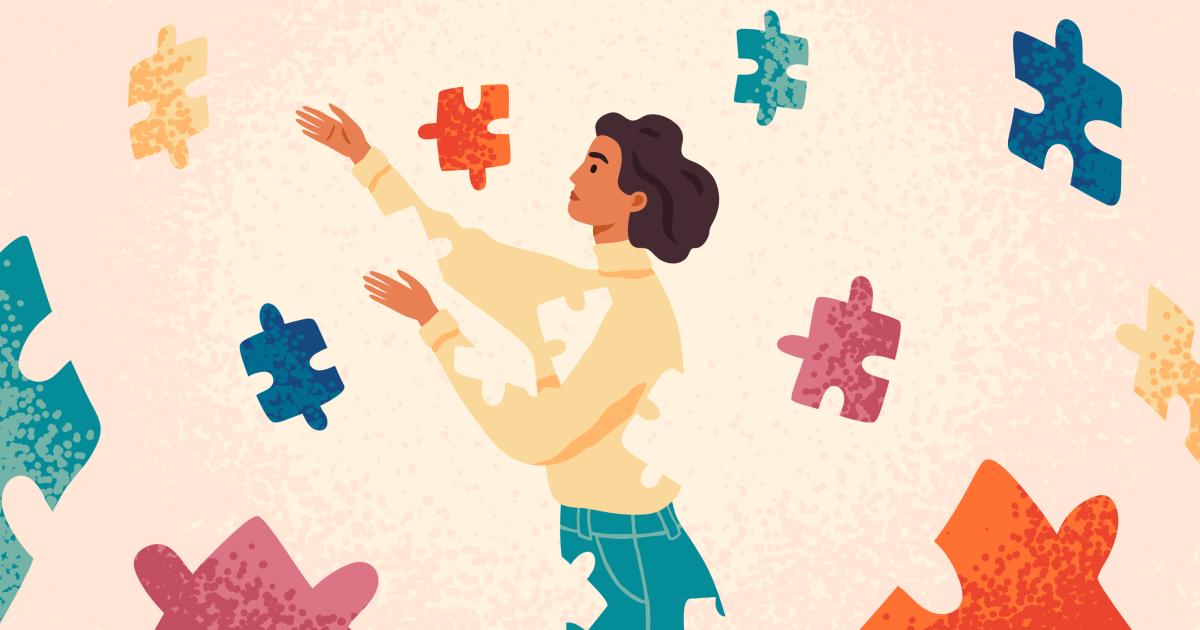How to Measure Your Impact on the World (Newsletter 072)

Greetings friends.
Do you have an idea how you impact the world? Would you like to know how you compare on a relative basis?
We're living in times when individuals can reach more fellow humans than ever before. This is because the world's population has never been larger and our tools to reach others have never been more powerful. As a result, people today can do great good but also great harm.
Introducing the Purpose-Influence-Power Model
The Purpose-Influence-Power Model gives us a helpful tool to examine individuals' relative impact. Let me explain a few terms and then we can fill in some details and try our model out.
What Does Purpose Mean?
Purpose means both what you are trying to achieve and the likely outcome, at least directionally. Important: you don't get credit for good intentions alone.
If you are trying to feed your family but you do so by selling drugs or stealing, you're trending towards the left side of the chart – causing harm. We say this even though your stated intention may be to help others, i.e. your family.
Similarly, if you say you want to help others, but you do so by establishing a charity that pays you a salary that consumes most of your donated funds, you belong in the self-focused column.
Think of purpose as intention plus effect, or your aim and the result you achieve.
What Does Influence Mean?
Influence means the number of people you can reach through your actions. How much good (or harm) can you do directly?
If you are selling vegetables from your garden, your reach is those people who buy your product.
If you are a petty criminal, your reach is the people you victimize plus the follow-on victims. I.e., stealing from a parent also affects what they can provide for their family.
If you are sharing ideas with the world, your reach is everyone who comes across your idea. A sign on your lawn has less reach than a letter to the editor of your local paper. Your letter has less reach than a viral video.
What Does Power Mean?
Power also measures the number of people your actions affect, with the difference that power reflects what you can do indirectly.
Because you're the CEO, you can fire thousands of employees with a simple decision. If you're the President, you can sign legislation into law. When you're a billionaire philanthropist, you can direct charitable spending that affects millions.
Power Versus Influence – Some Distinctions
A person with influence tends to have power because their ideas spread. While they cannot force anyone to change their behavior, their ideas cause people to change how they think. Thus, influence is a form of indirect power.
A person with power tends to have influence. If nothing else, they can force you to bend to their will. Their power can be purely structural, meaning it comes largely from their office or position because individuals do not trust their ideas.
Alternatively, a person's structural power can be supported by their also having influential ideas. A billionaire CEO with 100 million Twitter followers has both structural power and indirect power via their influence.
A Few Outside References on Power and Influence
I've kept our discussion non-technical. If you're interested in digging deeper, the organizational behavior field has useful discussions of power and influence at work. See, for example, this Lumen Learning course and this BetterUp article on using power and influence in leadership.
The Fun Part – Filling in the Chart
Now we can identify categories of people in the different areas of the Purpose-Influence-Power chart.

Most of Us
Most of us fall into the Most of Us category. We have limited influence or power and focus on our own problems. And that's totally OK. Because even without structural power or influential ideas, people can make the world worse.
Thugs
Those that cause intentional harm are Thugs. Thugs are plentiful and include petty criminals, online scammers, and everyone else who decides to harm others or is indifferent to their suffering.
Everyday Heroes
At the other end are Everyday Heroes, people who make the world better through their actions. They include anyone who contributes to charity, volunteers their time, or takes any action to alleviate unnecessary suffering.
Menaces
As one's influence and power grow, the greater your opportunities for real impact. Menaces use their power and influence for selfish purposes. They miss an opportunity to do good but do not descend into active harm. Think of narcissistic politicians or oligarchs who selfishly spend their money on lavish indulgences.
Monsters
The other two extremes interest us because their impact is great. Monsters have power and influence and cause harm to the world. As a reminder, intentions are not as important as impact, particularly when one has great power and influence.
- Mark Zuckerberg may have intended to connect the world, but his social media companies have also sowed mistrust, misinformation, and division.
- Similarly, George Soros may have intended to advance social justice, but his progressive prosecutors have unleashed a crime wave on the unhappy victims he was most hoping to help.
For more on why these two and others like them are correctly categorized as Monsters, see The Scariest Monsters Are Well-Intentioned.
Superheroes
This leaves us with the happy category of Superheroes, people who use their great power and influence with both the intention and effect of helping improve the world.
- Bill Gates and Warren Buffet are surely in this category thanks to their immense charitable contributions that have benevolent effects.
- It seems clear that Elon Musk belongs here as well. He generates resentment because of his power and influence, as do most in the top half of the chart. But Mr. Musk's intentions and his impact have been positive for humankind, at least so far.
Going forward we will fill in our chart with world leaders, politicians, celebrities, and more. Let me know someone you'd like to place on the Purpose-Influence-Power chart and we can do it together.
Be well.
PS – This week's Career Path article explains how we can have a real impact in our problem-solving. We must move beyond identifying problems and proposing solutions. The magic lies in understanding which solutions we can pragmatically implement.

I hope you got some useful information today. Please forward this mail to a like-minded friend. And if you received this mail from such a thoughtful friend, subscribe to the fabulous weekly newsletter.






Member discussion